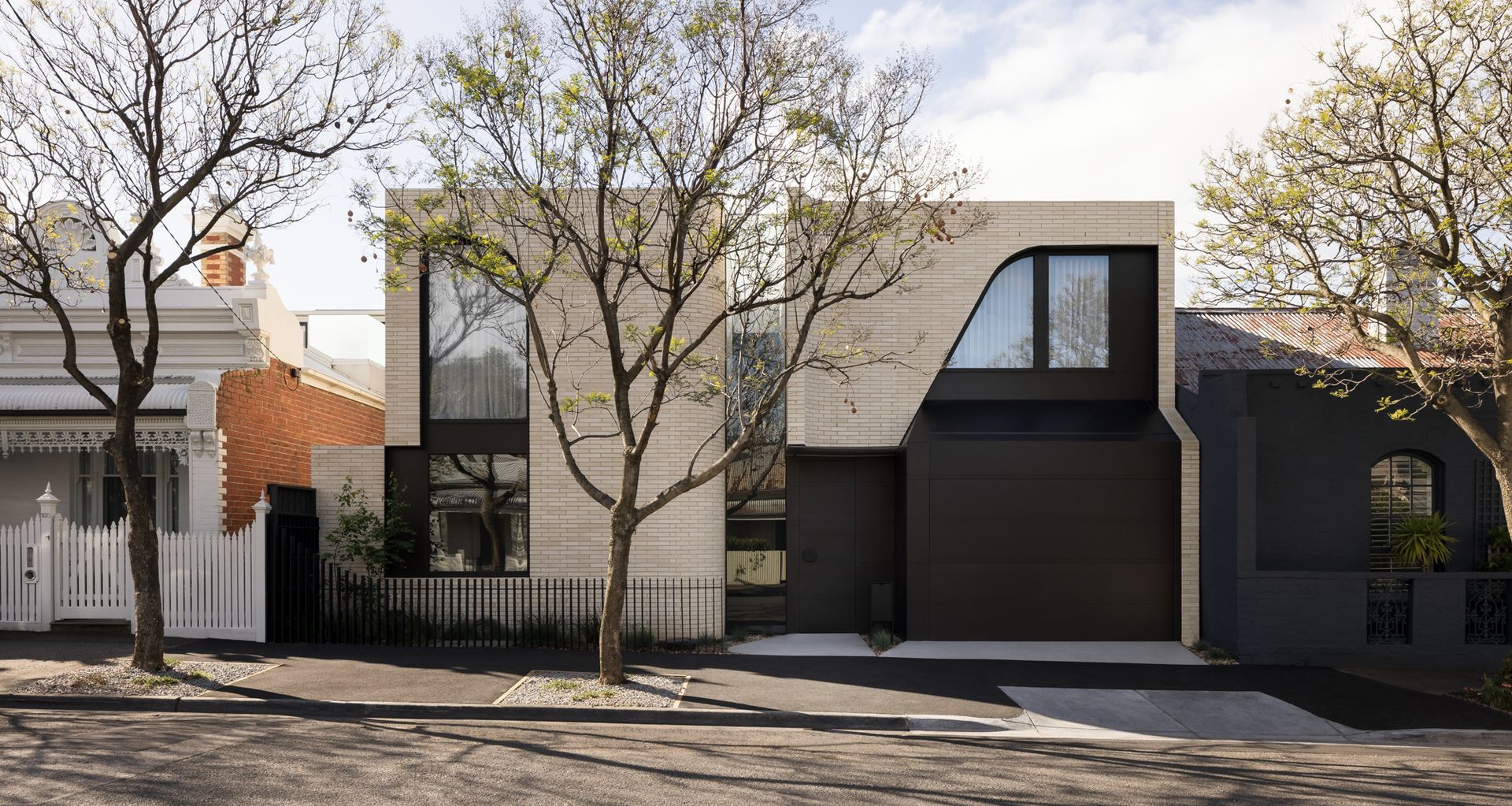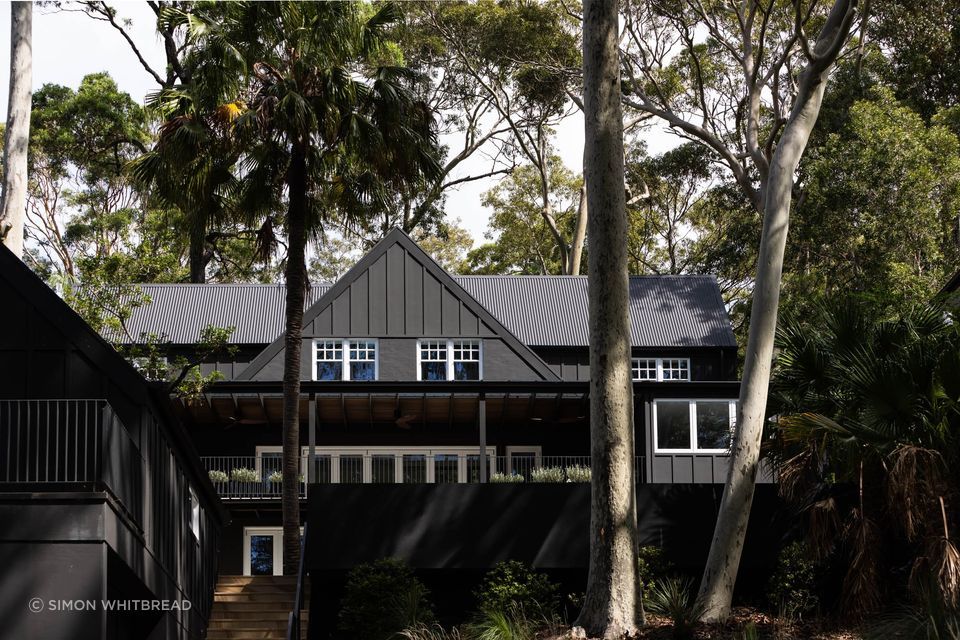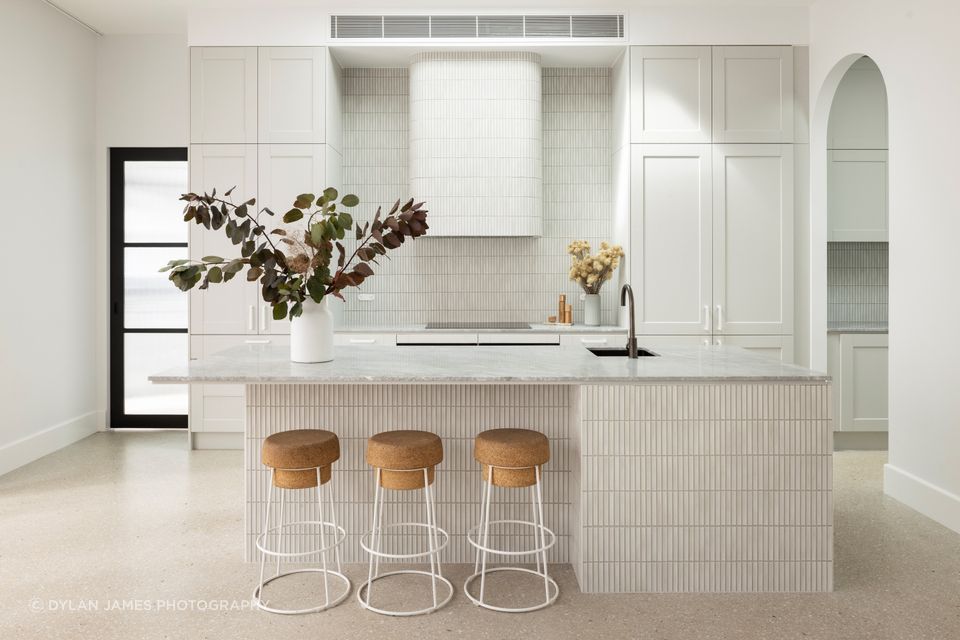Demystifying the role of a builder: How to find the right professional for your project
Written by
06 October 2024
•
11 min read

If you're about to embark on a new residential or commercial building project, one of the most important professionals you'll need is an experienced builder. However, before you start your search, it's crucial to fully understand what a builder does as you may harbour some misconceptions that could throw you off. With private sector housing approvals starting to pick up again (up 8.4% from last year), now's the time to start searching if you're wanting to do anything like this in the next few years.
What is a builder?
In Australia, a builder is a licensed professional responsible for overseeing and managing the construction of residential and commercial buildings. They interpret plans from architects, coordinate various trades, secure permits and ensure compliance with local building codes and safety standards.
They also manage project timelines and supervise other team members while working closely with the client, architect and engineers to deliver projects on time and budget.
Ultimately they are accountable for the overall quality of the construction work, playing a key role in bringing architectural designs to life.
The different types of builders
Within the building and construction industry in Australia, you'll find different types of professional builders plying their trade including:
1. Residential builders
These builders focus on constructing homes, including new builds as well as renovations and extensions. They work on everything from standard single-storey homes to townhouses, and apartment complexes to high-spec architecturally designed homes.
2. Commercial builders
Some professional builders work specifically in the commercial sector in the construction of offices, shopping centres, restaurants, hotels and more. These projects often have strict timelines, budgets and regulatory requirements, especially for structures intended for public use.
3. Industrial builders
Another niche is industrial construction which involves facilities like factories and warehouses. These can be very large undertakings that have specific industrial demands and needs, be it for oversized storage, manufacturing process and equipment or distribution.
4. Specialist builders
The final group of builders are specialists who focus on specific projects like heritage restoration and sustainable construction. These construction projects require specialist knowledge and techniques with often strict regulatory guidelines to adhere to.

Training and qualifications
To become a licensed builder in Australia, an individual must complete specific training, gain practical work experience, and meet the licensing requirements where they intend to practice, which vary by state and territory.
Many builders start their journey by pursuing qualifications like the Certificate II in Building and Construction (Pre-Apprenticeship) or the Certificate III in Carpentry or Building and Construction (Apprenticeship) to develop their foundational skills in carpentry and construction. Most then progress onto the Certificate IV or Diploma in Building and Construction, or an equivalent qualification, which allows them to meet the qualification requirement for licensing.
Work experience is another important part of the training process, with most state/territory licensing authorities requiring a minimum of 2-5 years of experience working in the construction industry, which often includes supervisory roles or those which involve managing projects.
The final step, depending on the licensing authority, is usually a competency test and/or interview. Post-registration you'll also need to continue to maintain your license, participating in Continuing Professional Development (CPD)
As you can see, the process to become a builder in Australia is quite rigorous and more involved than you might have imagined, as are their responsibilities in any building project.

The key responsibilities of a builder
As discussed at the start of the article, there is a common misconception that a builder's role is mostly manual labour work but the truth is the profession encompasses so much more. As you will soon see below, a professional builder is a knowledgeable, versatile and vital member of any construction project team.
1. Project planning
A big part of a builder's job is to interpret architectural plans from the architect or building designer. From this, they'll prepare cost estimates and begin to create a detailed plan for timelines and the construction process. Once underway, they will manage these resources to make sure everything stays on schedule and within budget.
2. Supervision of subcontractors
Builders will sometimes be in charge of hiring subcontractors (such as electricians and plumbers), coordinating their work schedules and acting as the central point of contact between all parties involved including the client and the architect. They will also manage the contracts to ensure all agreements are legally sound.
3. Quality assurance
As the project starts and progresses, they will regularly inspect work to make sure high standards of quality are being met. They will address defects or issues as they arise so that the finished product meets compliance codes and the client’s expectations before handover.
4. Obtaining permits
Speaking of compliance, a builder will secure the building permits required for the project. This will mean they will need to ensure their work complies with local council regulations as well as national building codes and environmental compliance during construction.
5. Workplace health and safety
Builders must practice and enforce workplace health and safety (WHS) regulations on-site, ensuring that safety protocols are followed to prevent accidents and injuries. Construction sites can be hazardous environments at times so the importance of this can't be understated.
6. Project management
A lot of their time is taken up by general project and construction management, making sure everything proceeds according to plan. They will manage the labour resources and keep the client updated with progress so they have a comprehensive understanding of where things are at. This also relates to managing costs which involves negotiating with suppliers and ordering materials when required.
7. Final inspections and maintenance
This has already been touched on but is worth reiterating as an important part of their role. Once a project is complete, they will conduct their final inspections before handing over the finished property to the client. In some cases, they might also offer post-construction support, such as maintenance, and warranties, and address any defects that arise after completion.
Related article: What is a building designer? A look at what they do and when to hire one

Are builders in demand?
At the time of writing, there is a huge demand for builders in Australia, especially in the context of the government's ambition to build 1.2 million new homes over the next 5 years to combat the country's housing shortage. In a recent speech, Housing Minister Clare O’Neil said the shortage of construction workers was "chronic" and that 90,000 more workers were required in the residential construction sector.
Industry organisations like Master Builders Australia are calling for changes to meet the growing demand, recently publishing a Skilled Migrants in Building and Construction Report that recommended a construction industry-specific visa pathway that makes it quicker, easier and more cost-effective for skilled migrants to get here.
Policy changes like this will no doubt be considered, but what does all this mean for home-building projects in the short term? Inevitably, what it means is that finding builders at the moment will be challenging, requiring a degree of patience and potentially rethinking the timeframes for your project.
Platforms like ArchiPro are a great starting point which feature over 200 builders and building companies from across Australia with profiles that allow you to view their details, servicing areas, previous projects and more, streamlining the selection process and saving you a lot of time.

Tips to help you find the right builder
Picking the right builder for a building or construction project is one of the most important decisions to make with architects often attesting to this themselves. Given the current state of the industry in Australia at the moment, this can be challenging, but there are some great tips that can help make the process smoother and easier.
1. Start your search on ArchiPro
ArchiPro was created to streamline the fragmented building and construction industry and one of its main objectives was to make it easier for people to find the right professionals for their projects. Every professional builder featured has been handpicked for the platform, based on their credentials, reputation and results, meaning you can browse the directory with confidence.
Each builder has their own in-depth profile with all the details you need to get you started including their location, services, previous projects, contact details and more. Most of the tips that follow can also be done on ArchiPro for a seamless and convenient experience.
2. Verify licensing and accreditation
For the professionals listed on ArchiPro, this part will be a quick formality, due to the calibre of the contractors featured. If, however, you've been passed on a potential builder from a friend or acquaintance who isn't on the site, it pays to check they are licensed in your state or territory.
You may also want to look for memberships with industry organisations such as the Master Builders Australia or the Housing Industry Association (HIA) which are a strong indicator of a commitment to professionalism and industry standards.
3. Look at previous projects and seek references
Again this is another step that's easily done on ArchiPro with each builder having a profile of projects with photos, however, if you're considering a builder that isn't on the site then it's imperative that you look into their past work and seek references.
Successful and experienced builders will have strong portfolios to share and won't have any problems providing testimonials, reviews or contacts of previous clients to verify the quality of their work. There may even be the opportunity to visit them at the site of an ongoing project allowing you to see them in action too.
4. Take note of their communication skills
A builder's communication skills are so important given how much time they spend liaising with architects and engineers, other subcontractors, suppliers, local and government authorities and more. On top of this, you'll want a builder that listens to you as the client, understanding your needs, wants and goals for the project.
You can learn a lot about a builder's communication style in your first meeting with them and how they receive your ideas for the project. Pay close attention to their responses and also ask how they will keep you informed throughout the project about all issues to do with timeframes, costs and changes along the way.
5. Get detailed quotes and check for insurance and warranties
As a result of a search, you'll likely have a shortlist of a few different potential builders in your area and it's important to ask for detailed quotes from each of them. These quotes should include a breakdown of labour costs, materials and anything additional so you can make a meaningful comparison.
At the same time, you should ask about the insurance coverage a builder has as well as the warranties they offer on their work. This is particularly important for larger projects where the risk is higher and the margins are possibly tighter too.
6. Be clear on timeframes
Timing is everything on a project, or at least a very significant part of it. Ask the builder for an honest projection of the timeline and think carefully about if and how this will work for you.
An experienced builder should also be able to identify areas in the project that might be vulnerable to delays and ways to mitigate this including contingency plans to prepare.
7. Understand the contract
Last but not least, the final step to find the right builder is to make sure you fully understand the terms of the contract you'll be signing. The contract should include specifics like the scope of work, timelines, payment schedules and how variations to the contract (or any disputes) will be handled.
For added due diligence, it's best to have a lawyer review the contract, especially for large or complex projects, just to ensure you don't get caught out by any unexpected legalities down the track.

A good builder is key to a successful project
As you can see, by fully understanding what a builder does, you put yourself in a much better position to choose one that will make your next project a resounding success. They have so many touchpoints in the building process, are a constant presence on the construction site, and will be there doing the final checks before handing everything over, making their overall influence on a project abundantly clear. If you're able to get this decision right, many other things will fall in place leaving you with no regrets for the time and effort you invested early in your journey.
Related article: What do architects do? An essential read before your next project